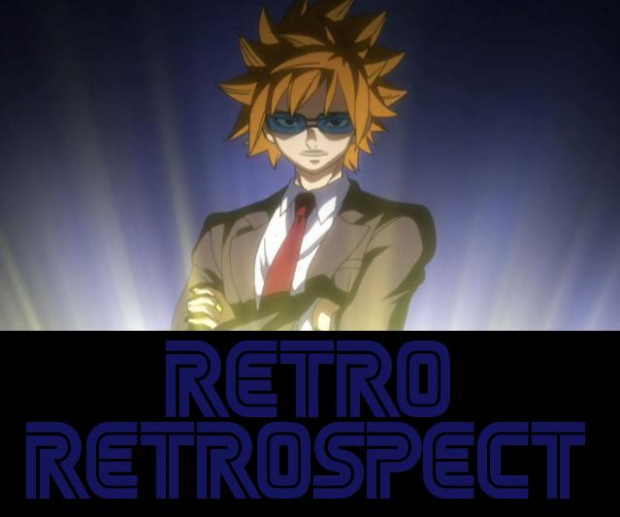Be prepared for a few isekai.
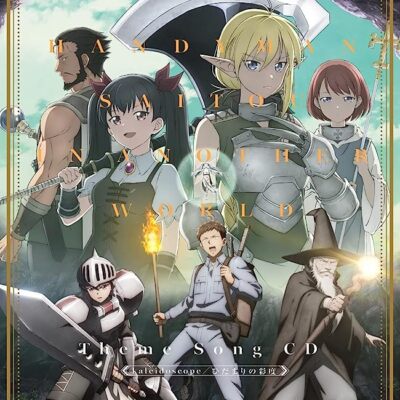
Japanese Handyman Saitou is isekai'd to another world joining an adventure group consisting of a warrior woman Raelza, a fairy lafanpan and a powerful yet memory hazed wizard Morlock, Saitou acting as a support by unlocking treasure chests, constructing armour, building useful items and helping Morlock remembering spells; along with Saitou's group, short vignettes of other adventuring groups building a bigger narrative that brings them together, there are many stories going on throughout.
It's an interesting world build and equally interesting story build, it's slight adult edge gives more gravity to the magic system as we find out why Morlock is forgetful and how death is treated, while there are silly moments, it can really remind you of the consequences if you forget that this is quite a serious fantasy show.
Dub is good and really takes advantage of the adult humour.
Final Verdict: A strong, balanced isekai with a good mixture of adult jokes and mature scenes.
Based on an actual Hawaiian Themed Resort in Japan.
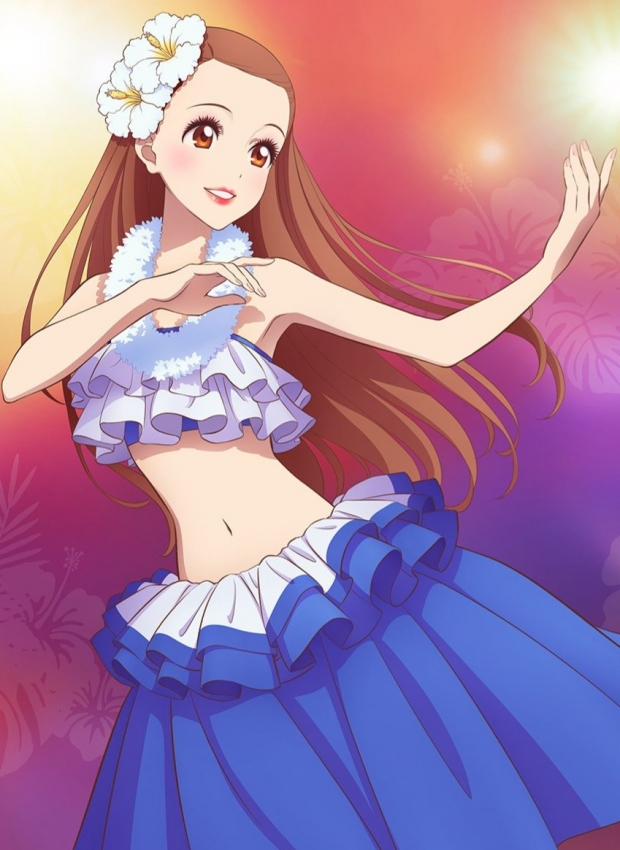
Hiwa is a young girl with a desire to follow her late older sister's footsteps into the world of Hula Dancing at a well known Hawaiian Resort, joined by a stuck up pro, a laid back Sumo lady, a shy girl and a Hawaiian native, Hiwa and her new found friends compete in contests and grow to become splendid hula dancers over the years of intense training.
You can instantly tell this was made by the Love Live crew with how the idol tropes manage to slip in, thankfully with the pacing, it doesn't become a nuisance and much of the charm of the film comes from the fact that this is based on an actual Hawaiian resort, my only real complaint is the talking doll, I won't spoil it but adding a supernatural element to an otherwise grounded in reality film does take you out of the immersion.
Not seen a dub should be decent though.
Final Verdict: A pleasant film obviously taking as many tropes from Love Live as possible but not stuffing your brain with the melodrama that usually comes with it, certainly worth your time.
Not what I was expecting.
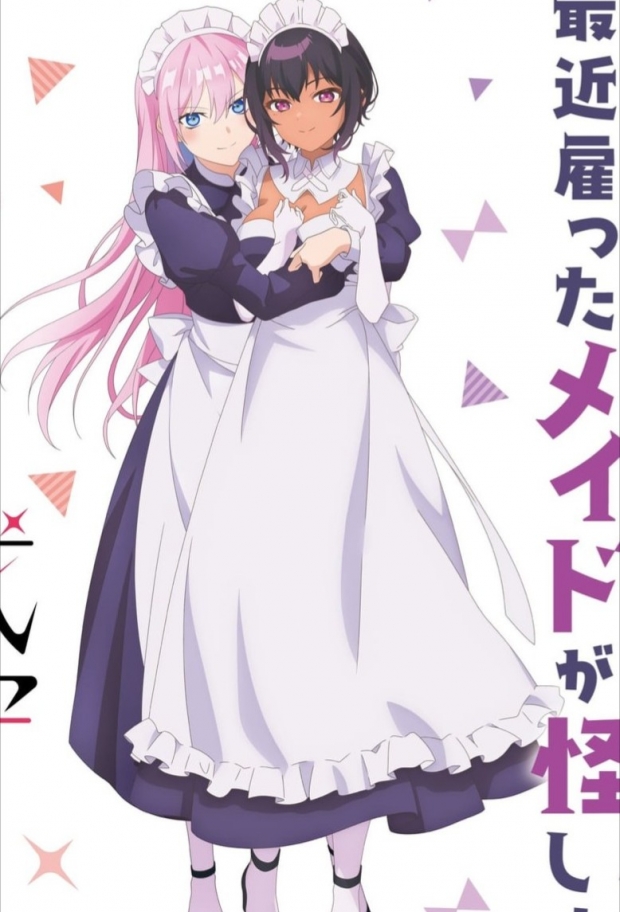
Yuuri is a young boy alone in his mansion following the death of his parents until one day a maid of dark skin, striking pink eyes and modest bust arrives to become his maid known as Lilith, initially suspicious of the beautiful maid and not helped by her naturally teasing nature, Yuuri must work out why Lilith decided to serve him.
This is not what I expected, while they obviously can't go full adult, I found myself feeling a bit bored, Yuuri being innocently honest makes for a running joke that out stays its welcome and suddenly makes this eleven episode run a bit of a strain to view as were spending most of the series repeating the same jokes, Lilith is such a uniquely designed character for an anime that it feels wasted on a safe anime like this, if not for her, you'll forget this very quickly.
Not seen the dub, but as long as Lilith is voiced correctly, should be okay.
Final Verdict: Its pretty boring, Lilith is well done but is stuck in such a boring anime.
Right new review
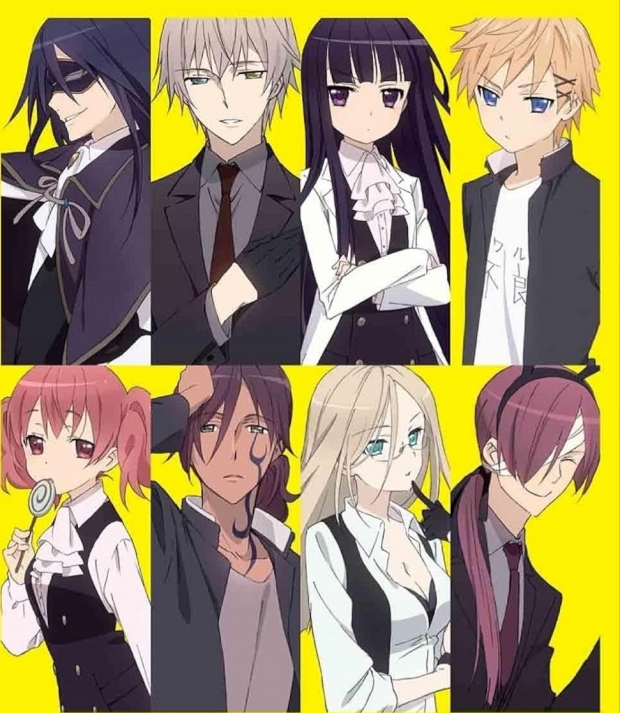
Ririchiyo is a girl with oni blood, shunned by society, kept in a lonely house and wanted for her status, she goes to live in Maison De Ayakashi with others like her, she is assigned a bodyguard named Miketsukami, a fox demon who is a little too attached to the 15 year old girl despite Ririchiyo's penchant for being an unlikeable bitch as a defence mechanism. Curses, games and wacky hijinks makes Maison de Ayakashi hardly boring.
Although I did wish the anime did more with the setting, it's world building is one of it's strongest traits but ultimately chooses to waste time seeing Miketsukami being creepy, there are characters that help break the tension like Kagero's routine of calling the residents "human toilets" and comparing everything between Sadist and Masochist but even that gets old; a quick look into the manga beyond reveals more than I wanted to see as the story goes off the rails and even starts making it's adult characters into children as there is a subplot about reincarnation hinted at from the final episode, it's fixation on young characters unfortunately is hard to unsee considering how it's adults act.
Its even more baffling that this anime has an all star dub cast that feels straight out of old ADVFilms, so why try for this but not something more deserving, yeah it's a good dub but didn't deserve one.
Final Verdict: It's weird obsession of young characters and a world built to go unused makes Inu x Boku SS a massive disappointment.
First review in weeks.
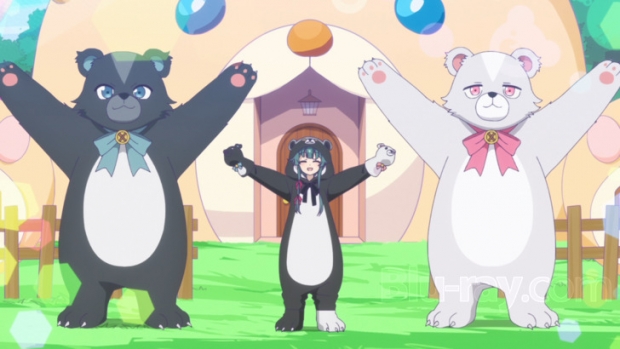
Yuna is a socially withdrawn teen who spends all day in virtual MMOs, when you have that much money and your parents live off that, there's no point in doing much else, until she is offered a gift of a bear suit that not only gives her OP powers but Isekais her to a new world, despite her bear suit looking like a pair of pajamas Yuna quickly establishes herself as a major adventurer and looks set to up end the whole order along with her heavy bank balance in tow.
So this goes under, you have all these crazy powers but you're wearing something ridiculous trope but Yuna is a character who quickly becomes endearing when you consider that she's very kind to children, has issues with nobles and has the power and influence to back it up, but also is a little selfish and defeats a Kraken just because she wants seafood or builds a tunnel just to access a seafood town, so when you get a rare glimpse of Yuna in a dress, it catches you off guard how young and normal she looks, I don't know why but female isekai protagonists are just easier to like than the males, she's also a girl boss that works well.
Dub should be fine but I imagine some subjects are played up for the audience more than the original, I can also see this dragging its heels if they decide to do more seasons, there's only so much you can see the same thing every episode.
Final Verdict: A charming little isekai that has a well rounded protagonist and one of the only girl bosses that work, after two seasons, I doubt it could hold its audience any longer, the content we did get is pretty solid.
